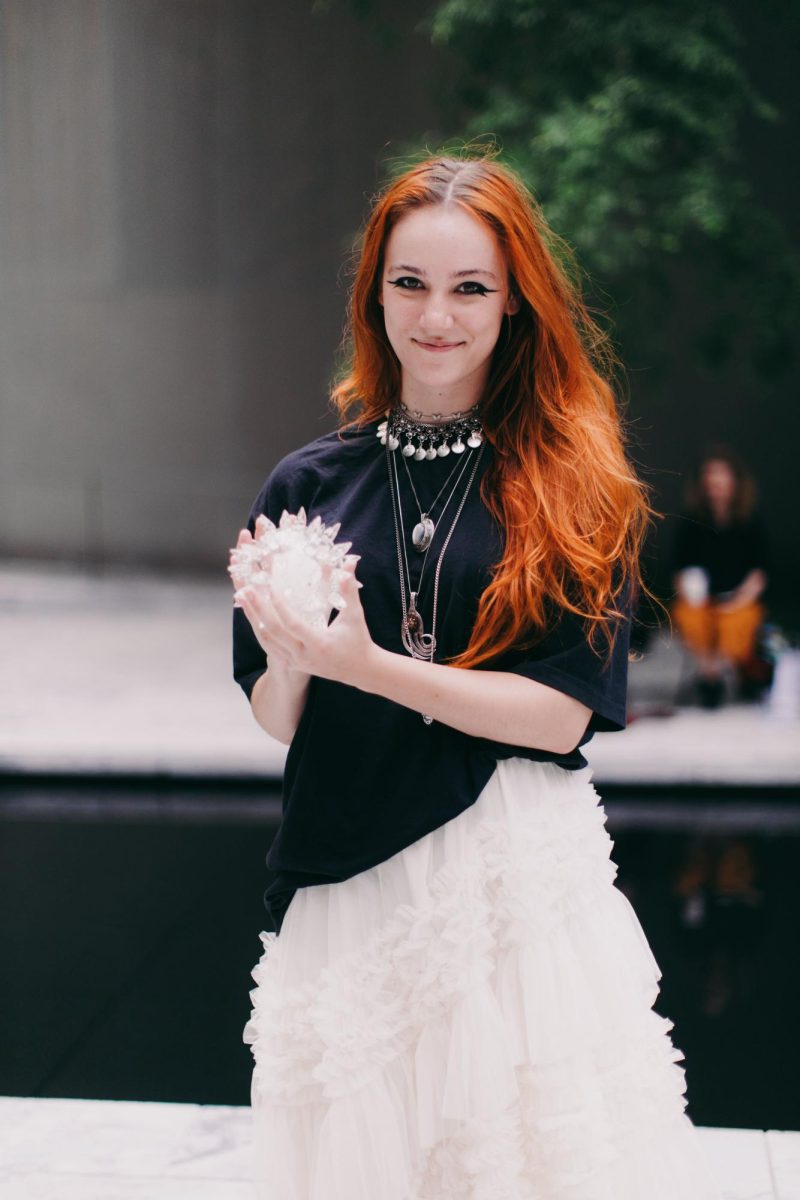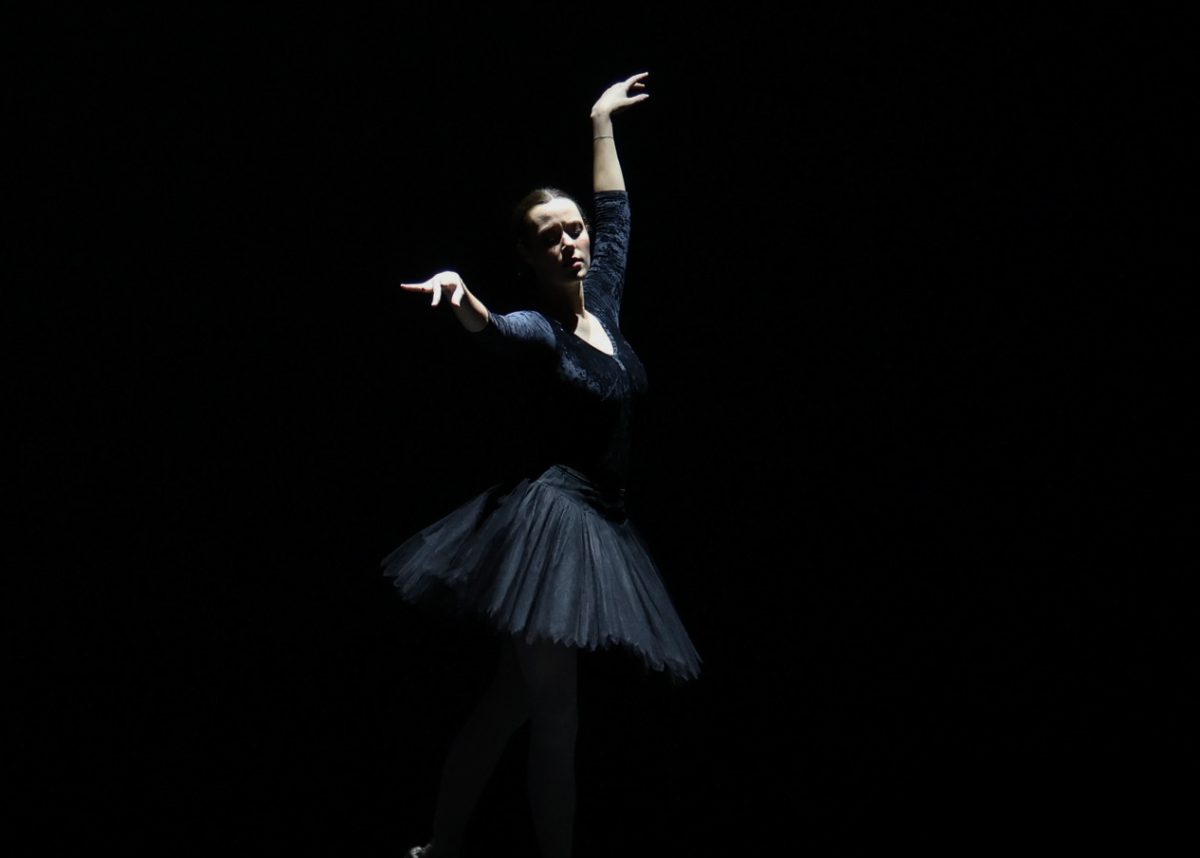Imagine a world where humans eat a probiotic pill that allows for the digestion of plastic waste, promoting a greener future. The caveat to this pill lies in its composition – worm feces.
Yet, the pill won biochemistry junior Anya Koehne the grand prize for her project, “Consume Our Consumption,” at the Biodesign Challenge Summit, a competition that fosters Biodesign innovation. She competed against over 600 students across the globe on June 21. “Consume Our Consumption” stems from the gut bacteria in Zophobas morio, or darkling beetle larvae, and its ability to degrade plastic into organic material.
“Around the world (the worms) are studied by (cutting them) open and (taking) out (the) guts – that’s how you get your bacterial samples,” Koehne said. “This is problematic because … it’s very limiting to their ability to be studied. … The research project is about trying to get those bacterial samples taken from the poop of the worms instead. That way you can keep the worms alive, take multiple samples from them and track changes in bacterial activity over time.”
Koehne said “Consume Our Consumption” plays into a utopian future, combining scientific research with speculative reasoning. She said they visualized a pill that transfers the plastic-degrading microbiome to other organisms.
“Imagine sea turtles that can eat plastic or dogs (eating) plastic scraps under the table,” Koehne said. “We created a pill – it’s this miracle solution to plastic pollution going to solve all your issues.”
Koehne said this creation flourished in the Ecocentric Future Lab, a class at UT that explores the intersection of art, design, technology and biology. When discussing the pill, lab director and assistant professor Jiabao Li said she noticed a commonality.
“We are enlisting other species to help clean up our (mess), so why don’t we also eat (the pill),” Li said. “That’s when we came up with the idea that it could be a probiotic similar to the normal probiotic that we eat.”
Koehne said her involvement in the Freshman Research Initiative allowed her to begin research for this project last September. However, Koehne said her admittance into Li’s lab last spring turned her research into a collaborative Biodesign creation.
“Biodesign is something that I’ve known about on the periphery and been interested in for a very long time,” Koehne said. “I started out being like … ‘I think I’m going to be at the bottom of the class.’… As the semester went on, I figured out how to put my scientific contributions with everybody else’s artistic and design contributions.”
“Consume Our Consumption” designer Annan Zuo said he enjoyed working alongside everyone on this project and immersing himself in the Biodesign world.
“It’s something new for me because my background is architecture, and I’ve never done something like product design,” Zuo said. “This entire project is about promoting this medical product, so I had to learn some tricks to actually design something that’s small scale.”
Li said she picks one design from her lab each year to present and compete at the Biodesign Challenge Summit. After merely two years of this, Koehne secured the highest award despite feeling imposter syndrome.
“Seeing myself back in November, having absolutely no idea where this was gonna go, (and then) cut to June and I won the whole thing,” Koehne said. “I felt all the joy that I had gotten from this over the past seven months, and it was so wonderful.”














